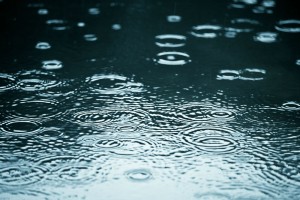Water is often your chimney’s worst enemy. Although they were built to withstand the elements, chimneys and fireplaces can be badly damaged by moisture, especially if the damage is not caught and repaired early.
Leaky chimneys and water damage can also lead to other chimney issues such as chimney odor, as well as creating a wet, ashy mess in your firebox. Fortunately, most moisture damage can be stopped with preventative maintenance, good upkeep, and regular chimney care.
How does the water get in?
There are a number of ways that water can find its way into your chimney system. In the rainy Northwest, it is especially important that chimneys are well protected against moisture. Below are some of the most common causes of water entry.
Chimney caps: Your chimney cap is your fireplace’s main defense against water entry. By covering the top of your chimney, water is not able to enter the flue. However, if your chimney cap is damaged or missing, it leaves your flue exposed and vulnerable to water entry, as well as debris and animals finding their way into your chimney.
Flashing: Flashing is the weatherproof stripping that seals the space when they chimney and roofline meet. Flashing may loose its seal over time, allowing gradually larger and larger amounts of water in; this can damage not just your chimney, but also your roof, ceilings, or frame. Likewise, flashing that is incorrectly installed may have nail holes that let in small amounts of water.
Masonry damage: Bricks and mortar are naturally porous. However, if they are cracked or chipped, additional water may be able to seep into the masonry. As this water freezes it expands, further damaging the bricks and allowing more and more water into the bricks. This causes the masonry to chip, crack, and even break away and fall off when left unrepaired. This freeze-thaw process is typically the main cause of masonry damage to a chimney structure.
Preventing water damage
Because water damage is a gradual process, it can often be spotted early and repaired before major damage occurs. The best way to prevent serious water entry is through having regular annual chimney cleanings and inspections. During a chimney inspection, a certified chimney sweep will inspect all accessible interior and exterior portions of the chimney for signs of water entry or damage.
Many homeowners choose to have their chimneys protected using a specially designed waterproofing product. At Pristine Sweeps, we proudly offer ChimneySaver waterproofing products to our customers. Unlike latex paint or other sealants which can trap moisture and gasses inside the masonry, ChimneySaver, forms a vapor-permeable moisture barrier. This keeps the water out but allows dangerous or harmful gasses to still pass through the brick.
If your chimney is leaking, finding the cause can be a difficult process. However, at Pristine Sweeps we are experts at finding the cause of and fixing leaky chimneys. If you are struggling with water entry or damage and your chimney system, contact Pristine Sweeps today. Our expert staff is ready to help by fixing the water damage and preventing it from happening again.

